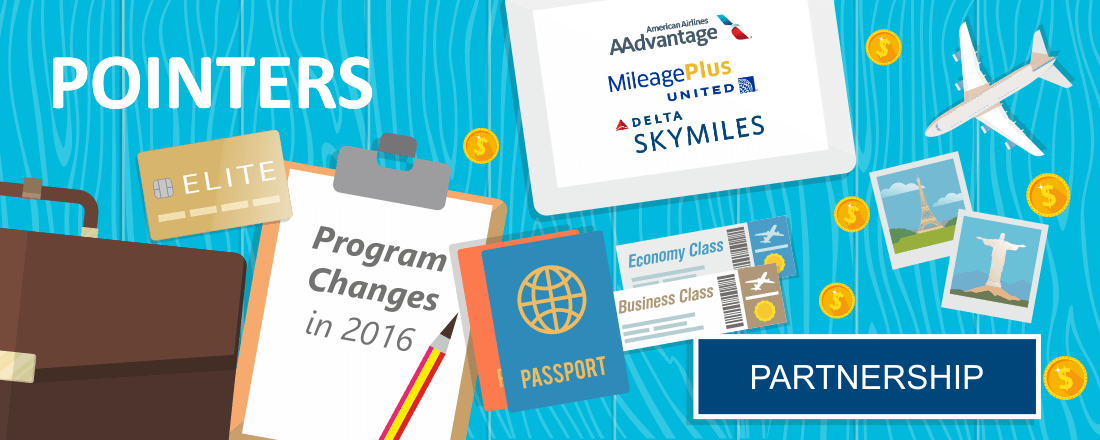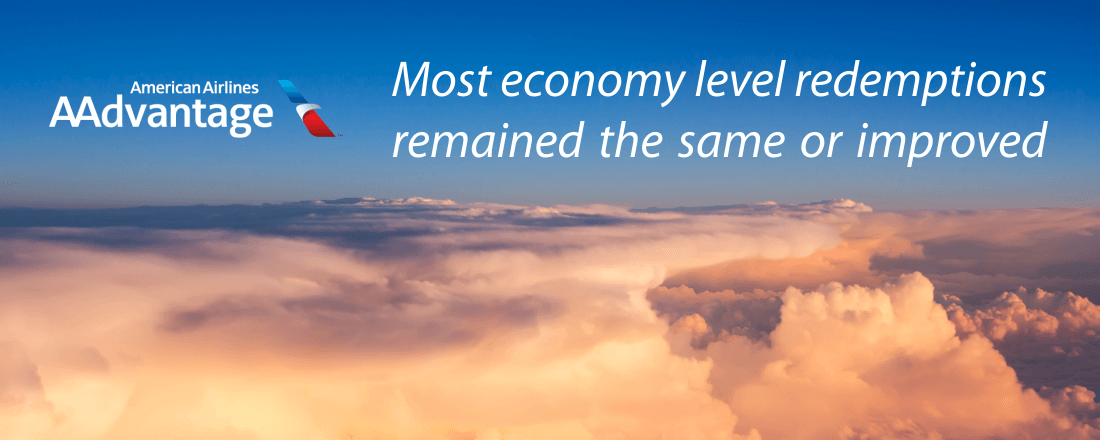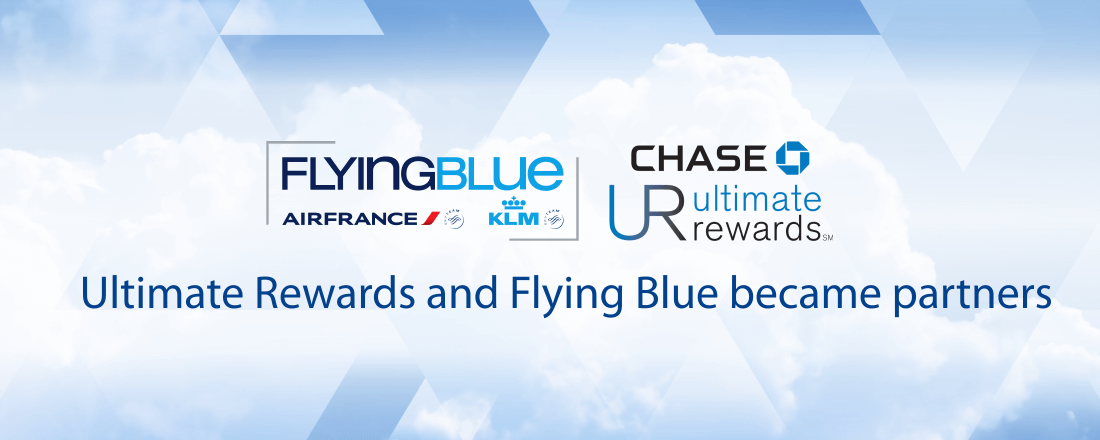
A lot happened in the world of frequent flyer programs this year. Not surprisingly, award chart devaluations were the norm, particularly for premium cabins. The news wasn’t all bad, though. Some redemptions actually dropped in price, and airlines and credit card issuers introduced new partnerships, giving members more redemption and transfer options.
American Airlines made the biggest program changes of 2016, including a notable price hike for most premium cabin awards. British Airways also received a lot of attention because it eliminated cheap short-haul awards in North America, a perennial favorite among travel hackers.
Many other carriers made changes to their programs too, including United, Delta, Alaska, Hawaiian, Singapore, Air Canada and more. Let’s take a closer look.
American Airlines AAdvantage
Not all of changes American made to its program were bad. Most economy level redemptions remained the same or even improved while business and first class awards took the biggest hits.
Round-trip economy class award flights on American to Mexico, the Caribbean and Central America were reduced by 5,000 miles. Those routes are now just 30,000 miles. Partner flights to the Middle East and Indian also got cheaper, dropping from 90,000 miles to just 80,000 roundtrip.
American also introduced cheap short-haul redemptions. You can now fly 500 miles or less for only 7,500 miles one way. You would’ve paid 12,500 for that same flight before the March 2016 changes.
A few business class redemptions remained the same or got cheaper, but most did not. For example, the price to the Caribbean, Mexico and Central America in Business dropped by 10,000 miles roundtrip, but flights to Europe went up by 15,000 miles roundtrip.
First class rates increased the most and across the board. First class awards to Hawaii jumped in price by 35,000 miles roundtrip. That was nothing compared to flights to the South Pacific which now cost a whopping 75,000 miles more.
American’s well-priced off-peak awards also took a hit. Many destinations were devalued and there are now fewer qualifying dates. If you do fly during off-peak times, you’ll now pay more to get to Hawaii, South America, Europe and Asian.
On the earning side, American made the switch to a revenue-based system in August. That means you’ll earn more if you spend more, which is good news for those who end up buying expensive tickets. It’s not so good for economy bargain hunters.
United MileagePlus
The biggest and potentially most valuable change to the United MileagePlus program is what they’re calling the Excursionist Perk. In short, you can now make one stopover on international itineraries at no extra charge. For instance, you could fly from New York to Paris, Paris to London and London back to New York, spending several days in both Paris and London. You can see two destinations for the price of one.
The Excursionist Perk does not extend to domestic itineraries, though. You’ll be charged for each leg as a one-way flight.
United also modified its change and cancellation fees. The cost for general MileagePlus members to cancel a flight dropped by $75 to a total of $125. Silver and Gold status members’ fees dropped by $25 and now cost $75 and $50, respectively. Platinum status holders, though, will now have to pay $50 where they previously paid nothing.
Change fees have jumped notably for all status levels. Previously elite status holders would pay nothing to change their flight up to 21 days in advance. Now Silver and Gold members will pay $50 and $25 respectively if the change is more than two months before the flight. If it’s less than two months, it jumps to $100 and $75, respectively. Platinum members will now pay $50 for changes within two months of departure.
Delta SkyMiles
The Delta SkyMiles program hasn’t published an award chart in a long time. That makes it difficult to determine what’s exactly going with their award flight pricing. While the program is not revenue-based and redemptions are still based on some sort of chart, it’s gotten increasingly difficult to determine if you’re getting the best deal for your miles. In other words, it’s hard to know if you’re getting the saver price for a ticket or paying extra because there’s limited award space on the flight.
In any case, it appears that Delta devalued most of its international business class awards this year. The increases ranged from about 10,000 to 15,000 miles one way. It also seems that some of its economy awards have gotten cheaper. For example, it’s possible to find a roundtrip flight to Australia for 90,000 miles, but previously it would’ve cost at least 100,000 miles.
!– wp:html –>
Like American, Delta dropped its lowest award prices to just 7,500 miles one way. That gives you another option for cheap short-haul domestic award flights. And if you happen to have a regional upgrade certificate, you can now use it on transcontinental flights.
New Partnerships
This year saw the introduction of a number of new partnerships involving both frequent flyer programs and credit card rewards programs. That means more options for you.
The Chase Ultimate Rewards program bumped its number of transfer partners up to seven with the addition of Air France KLM Flying Blue. With that move, Flying Blue joined Singapore Airlines and Virgin Atlantic as the only frequent flyer programs to be transfer partners with all three of the major credit card rewards programs: Chase Ultimate Rewards, American Express Membership Rewards and Citi ThankYou.
The Starwood Preferred Guest program added Avianca LifeMiles to its impressive list of over 30 airline transfer partners. Colombia-based Avianca operates seven airlines and is the second largest carrier in Latin America.
Alaska Airlines Mileage Plan added the Japanese carrier JAL to its list of partners. It also changed the rules for earning on flights operated by one of its other partners, American Airlines. Members will now earn up to 75 percent more for tickets booked in more expensive fare classes (F, J, D, I and R), but will get up to 75 percent less for cheaper tickets (V, G, N, S, Q and O).
Air Canada decided to open up award flights to Central and South America by adding the Brazilian airline GOL to its frequent flyer program, Aeroplan.
The Japanese carrier ANA also expanded the coverage of its program, Mileage Club, by adding Vietnam Airlines to its list of partners. Members now have a few more options for exploring Southeast Asia.
A few partnerships also came to an end in 2016. You can no longer book Hawaiian Airlines flights through American Airlines AAdvantage program, and ANA is no longer partners with South America’s TAM Airlines.
A Few Other Noteworthy Changes
One change this year that receive a lot of attention among travel hackers was British Airways elimination of cheap short-haul redemptions in North America. You used to be able to book those flights for just 4,500 Avios, but now it’ll cost you 7,500 Avios. That brings the cost in-line with American and Delta’s new pricing for short flights.
Alaska Airlines increased the cost for business and first class awards on flights with their partner, Emirates. Some first class redemptions increased by as much as 100 percent. It might still be worth it for the amazing experience the swanky carrier offers, but it’s certainly not the deal it once was.
The Lufthansa Miles & More program, on the other hand, dropped the price of domestic business class flights. You’ll pay 5,000 miles less, but only for flights outside of Europe.
Singapore Airlines introduced a number of changes to its program, KrisFlyer. In a welcome and unusual move, the carrier opened up award seats for its premium economy class. Unfortunately it’s quite expensive at about 80 percent the cost of a business class award. Plus, coach to business class upgrades have been eliminated on flights that offer premium economy.
The airline has devalued its awards in Europe by combining two zones into one. In reality, that means that business and first class awards to Athens, Amsterdam, Copenhagen and Rome have increased. Economy has not, and neither has the cost to the rest of Europe.
One bit of good news is that Singapore has gotten rid of its most expensive “full” award level fares. Those seats will now be available at the cheaper “standard” level.
The End of 2016
The news for frequent travelers was mixed this year. British Airways eliminated its 4,500-Avios redemptions, but American and Delta introduced cheaper short-haul awards. Premium cabin redemptions took the biggest hit with American charging more for most routes, Alaska getting rid of its bargain Emirates awards and Singapore removing cheaper rates for flights to parts of Europe. At the same time, Miles & More dropped domestic business class redemptions outside of Europe by 5,000 miles and Singapore introduced premium economy redemptions. Both welcome changes.



